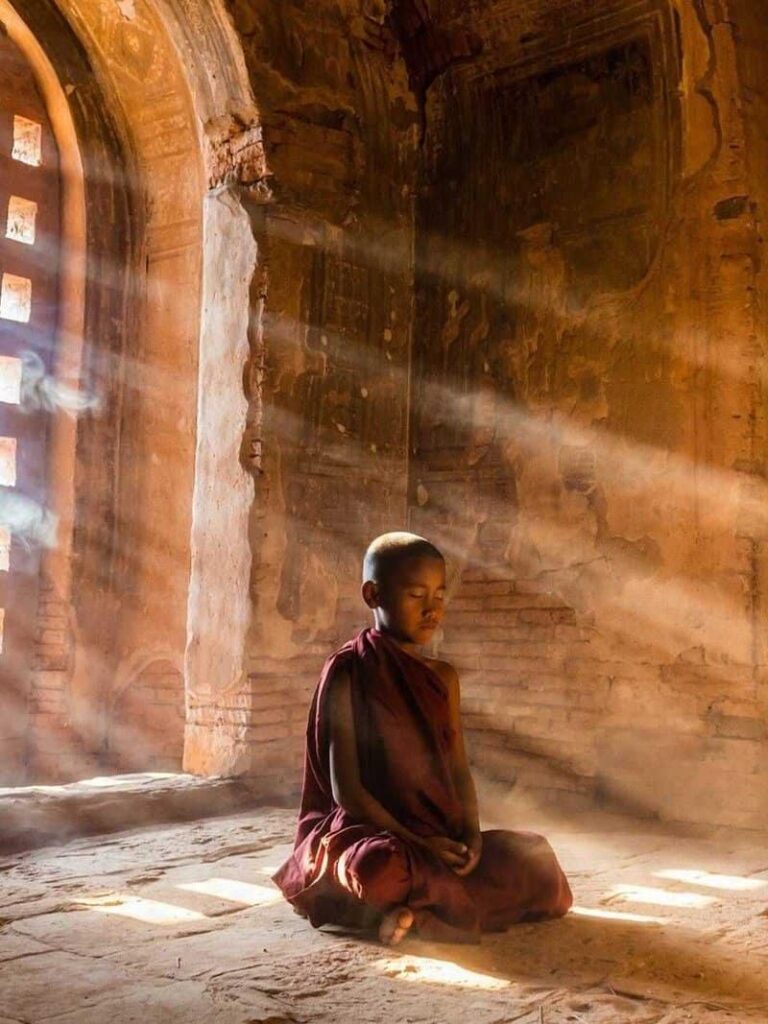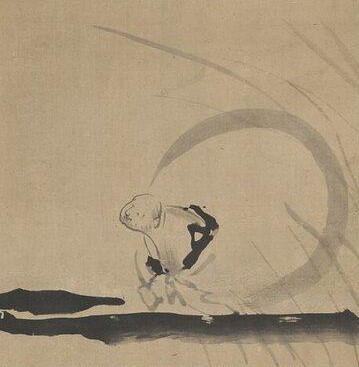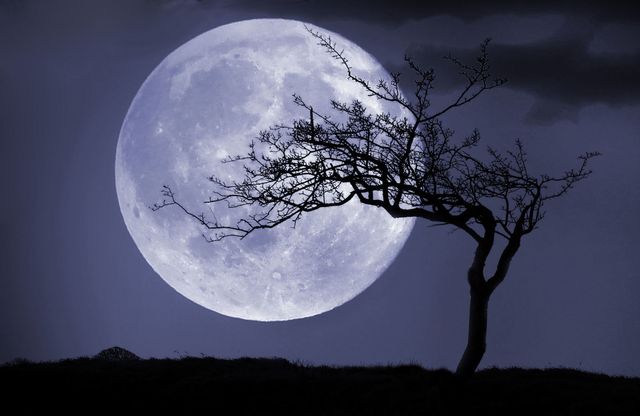Hi, is Zen considered a Vajrayana ‘way’?
I would say that it isn’t when considered by the most important criteria. If the major factor which distinguishes the Vajrayana from Mahayana and Hinayana is the fact that it uses the result as the path, whereas the other two yanas use the cause as the path, then Zen is most definitely not Vajrayana. It is very much about creating the conditions and developing the qualities which will lead you to Enlightenment. Vajrayana, as we know, is very much about focussing on the already present qualities of Enlightenment. Hence, the use of such things as Deity practice, with all that follows from that.
Isn’t at least one of the Zen traditions – Rinzai Zen – Vajrayana?
There are indeed a number of branches of Zen, all of which follow Chinese traditions, and all of them are very much Mahayana in view and method, Rinzai Zen included.

The third turning of the wheel of Dharma
Zen teachings sound quite close to some of Vajarayana teachings
One interesting aspect of Zen which it does have in common with Kagyu Dharma is that it is based on the third turning of the wheel of Dharma teachings, ie, on those of Tathagatagarbha (Buddha Nature) teachings, and on the ‘Three Natures’ teaching. To that extent, it also has a flavour to it which very much focuses on the fullness of qualities which are present in the Enlightened mind, and present in Emptiness, which Kagyu Dharma also has.
Simplicity is a strength
Another commonality with Kagyu Mahamudra is that Zen practice, like that of the Theravada, is very simple in its core and that simplicity is in many ways its strength, for those that are karmically attracted to that path. Whether you are doing Koan practice in Rinzai Zen, or doing ‘Just sitting’ practice in Soto Zen, either way, there is very little for you to work with, very little for you to get caught up in and lost in (such as intellectual ramifications), and so you are forced to focus your efforts Dharmically. For those so inclined, this can be a very powerful means indeed. Sometimes simple is indeed best!
However, as noted above, the practice is very much on the causes rather than on the results, so is not Vajrayana. Of course, that does not diminish it’s effectiveness or value, if that is what you are karmically predisposed to. And of course, much of Kagyu Dharma is not Vajrayana either, for that matter.
Lin Zi / Lin Chi
For Lin Zi personally, I have very special gratitude.
Thank you for sharing your very inspiring description of your inspiration from reading and reflecting on Lin Chi. Many of the Chinese and Japanese hermits writings are so stunningly direct, and evocative indeed.
with best wishes in the Dharma
There is a follow up post in the same conversation: Soto and Rinzai Zen – Sutra, Tantra and Essence Mahamudra





I would not say that Zen is Vajrayana, but Mahamudra and Zen might be connected, prior to Bodhidharma and Saraha. Anyway, even if contemporary Zen lost some of the original teachings, I am convinced that Tang dynasty Zen was very much like Mahamudra. I think that many Lamas don’t understand that Zen is a special transmission. It is therefore not Mahayana (sutrayana) as such. However, in Zen the Sutras are used to seal the mind. They are only used to test one’s understanding of Buddhadhrama. You will note also that Mahamudra is not like other Mahayana higher tantras in the sense that preliminary practice and generation stage is not always required. In Zen “pointing out instructions” are not formalized. However, if you read Tang Zen authors, you will see that they all point to the nature of the Mind. These instructions became koans later on, i.e., “what was your face before your parents were born?”, “where is your mind?”, “who is dragging this corpse?”, etc…